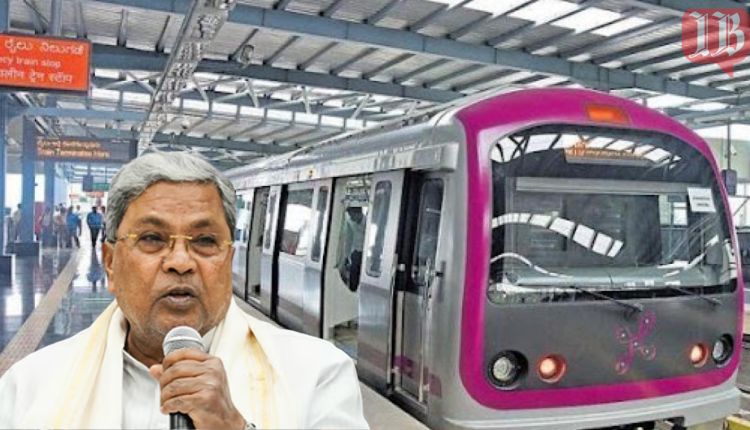Bengaluru: A fierce political controversy has erupted in Karnataka following Chief Minister Siddaramaiah’s proposal to rename the under-construction metro station in Shivajinagar as St Mary, drawing sharp condemnation from the Bharatiya Janata Party (BJP), which labelled it a grave insult to the legendary Maratha ruler Chhatrapati Shivaji Maharaj.
The clash became larger when at a public event at St Mary’s Basilica in Shivajinagar, Siddaramaiah stated that he had sent a proposal for the next metro station to the Central Government to rename it after the church. The Congress-led government has been accused of pandering to the voters in exchange for historical reverence by turning what should be a gesture of support to the local Christian community into a controversy.
Maharashtra Chief Minister Devendra Fadnavis led the charge, vehemently denouncing the plan. “I strongly condemn the Karnataka government’s step to rename Bengaluru’s Shivajinagar metro station as St Mary. “This is an insult to Chhatrapati Shivaji Maharaj,” Fadnavis told PTI. Fadnavis also accused Congress of adopting the “tradition” of disrespecting the Maratha warrior king; most times it is based on incidents connected with Jawaharlal Nehru’s supposed remarks in his book ‘Discovery of India’.Fadnavis prayed to “God’s wisdom” that it may help Siddaramaiah to be deterred from taking this “religion-based” step which weakens the history of Shivaji.
MLC of Maharashtra BJP Chitra Wagh also pointed out the hatred towards Shivaji by the Congress, which was revealed by this decision. She pointed out that the demand for the name change was made by Congress MLA Rizwan Arshad, and Siddaramaiah was asked to send a proposal for changing the name. Wagh asked Maharashtra Congress if they were really ready to become masters of the art of appeasement after clarifying their stand on this matter.
In Karnataka, BJP leader and Leader of Opposition in the Legislative Council, Chalavadi Narayanaswamy, lambasted the government for its “appeasement politics”. “Will they remove the Shivajinagar name altogether?” he questioned, warning that such tactics have historically backfired on Congress. “Despite suffering losses due to appeasement, they persist with it. “We won’t allow this,” Narayanaswamy asserted.
The proposal has transcended state borders, stirring debates on cultural heritage versus minority appeasement. Shivajinagar, a bustling area named after the iconic ruler, holds symbolic importance for many, and renaming its metro station could alter local identity. Critics argue it dilutes historical narratives, while supporters might see it as inclusive urban planning.
As the backlash grows, all eyes are on the central government’s response. Will the rename proceed, or will political pressure force a rethink? The episode underscores the delicate balance between tradition and modernity in India’s diverse landscape, potentially influencing upcoming electoral dynamics in both states.



Comments are closed.